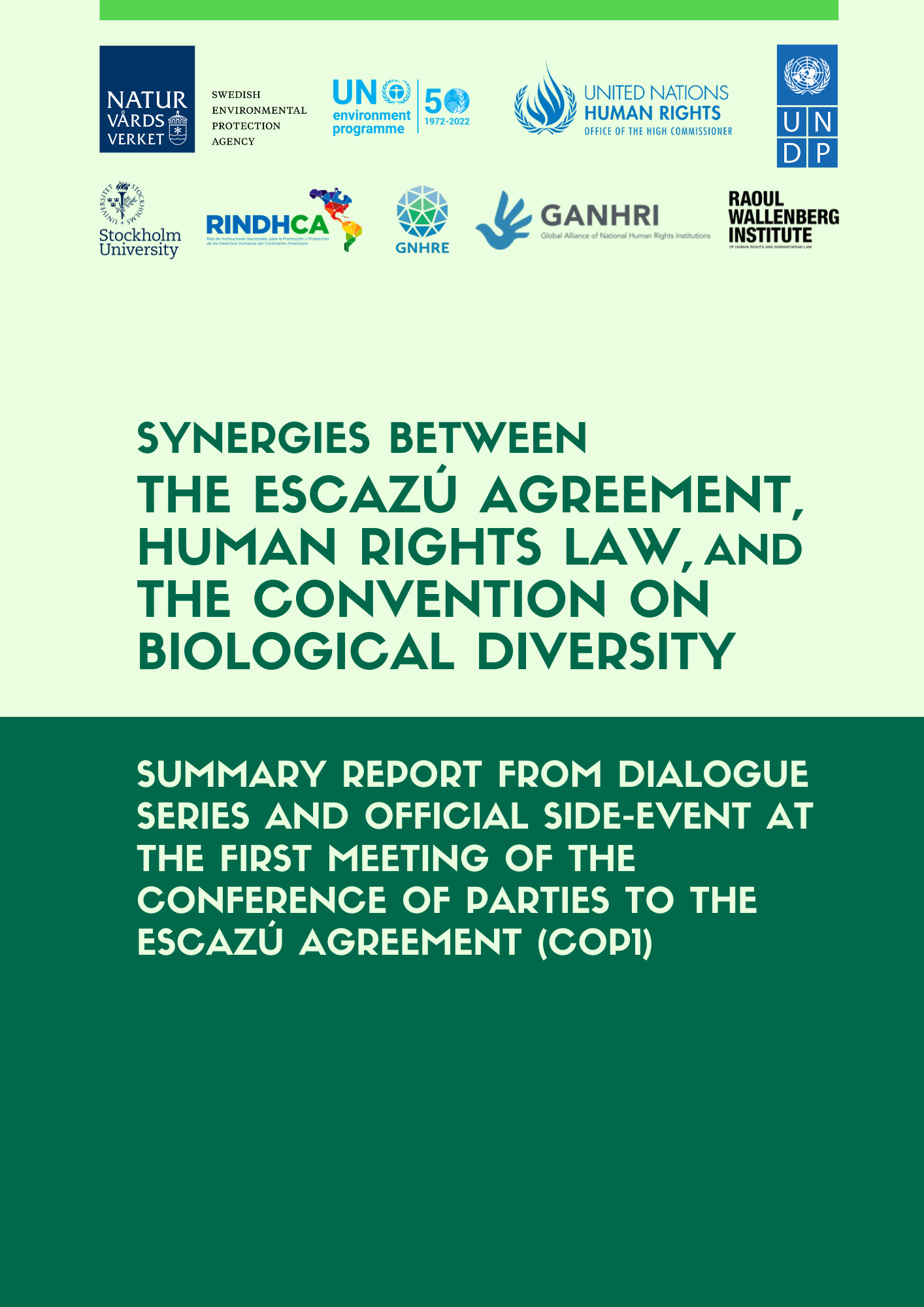#EscazúAgreement Summary Report is now available in English, Spanish and Portuguese!
Marking the historic first Conference of the Parties of the Escazú Agreement (COP 1) in April 2022, the official side-event on "Synergies between the Escazú Agreement, Human Rights Law and the Convention on Biological Diversity (CBD)" brought together more than 240 registered participants from 68 countries, including human rights practitioners, environmental and human rights defenders, government decision-makers and experts. Read the Summary Report here!
“Either we survive together, or we drown separately” - H.E. Gabriel Boric, President of Chile, synthesising multilateralism’s vital role in Latin America and the Caribbean during the COP1 Opening Session.
“The Escazú Agreement provides a framework to tackle the environmental and governance crises in an integrated manner”- Jairo Acuña-Alfaro, Regional Team Leader - Governance, UNDP.
“The rights to access to information, participation, and justice, which are part of the Escazú Agreement, are crucial elements for the implementation of the core objectives of the Convention on Biological Diversity”- Santiago Carrizosa, Senior Technical Advisor on Biodiversity and Ecosystems for Latin America and the Caribbean, UNDP.
The Regional Agreement on Access to Information, Public Participation and Justice in Environmental Matters in Latin America and the Caribbean (the Escazú Agreement) is the first regional agreement in Latin America and the Caribbean with a focus on both environmental and human rights and became the first agreement in the world to prescribe legal protection for environmental human rights defenders.
The side-event was held on April 21, 2022, both as an online meeting and physically at the ECLAC Headquarters in Santiago, Chile. It was co-organized by the joint Swedish Environmental Protection Agency – UNDP Environmental Governance Programme (EGP); UNDP in Latin America and the Caribbean; the Office of the United Nations High Commissioner on Human Rights (OHCHR); the UN Environment Programme (UNEP); the Raoul Wallenberg Institute on Human Rights and Humanitarian Law; Stockholm University; the Network of National Human Rights Institutions of the American Continent (RINDHCA); and the Global Network of Human Rights and Environment (GNHRE).


Please log in or sign up to comment.